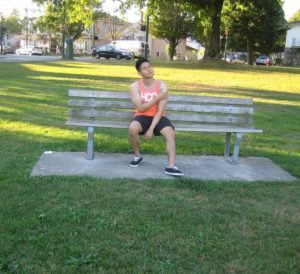Frozen shoulder involves pain, rigidity and diminished range of movement in the shoulder. It can develop after overuse, injury or from a condition such as stroke or diabetes. The tissue surrounding the joint become rigid, scar tissue arises and movements of the joint become painful and difficult. The condition typically develops gradually and slows down over a year or more.
What are the causes?
Frozen shoulder can develop if the joint is not used normally due to pain, injury or chronic health condition such as stroke or diabetes. Any shoulder condition can result to the development of frozen shoulder if the full range of motion is not maintained.
The condition is likely to develop:

- After an injury or surgical procedure
- Among individuals ages 40-70
- More often among women than men (especially those in the post-menopausal stage)
- Most often among those who have chronic conditions
Management
The treatment for a frozen shoulder typically starts with non-steroidal anti-inflammatory drugs (NSAIDs) and application of heat on the affected area. This is followed by mild stretching. The cold therapy and medications might also be used to reduce the pain and swelling.
In some cases, physiotherapy can help increase the range of motion. Remember that the condition might take up to a year or longer to get better.
If the treatment is not effective, surgery is oftentimes required to loosen some of the taut tissues surrounding the shoulder.
Preventive measures
Gentle, progressive range of motion exercises, stretching and utilizing the shoulder more often can help prevent the condition after a surgical procedure or an injury. Many experts could not precisely pinpoint the cause in some cases and might not be prevented. It is vital to be persevering and carefully follow the advice of the doctor. Remember that the condition nearly settles over time.
